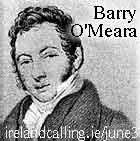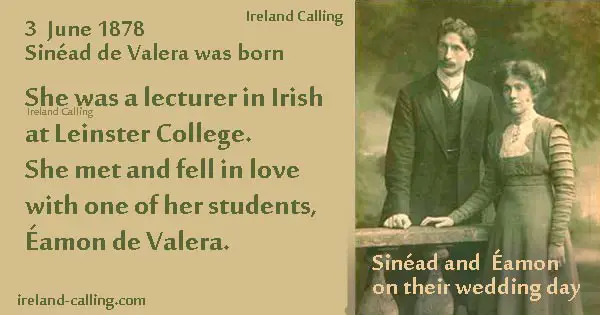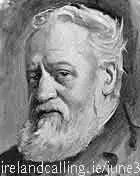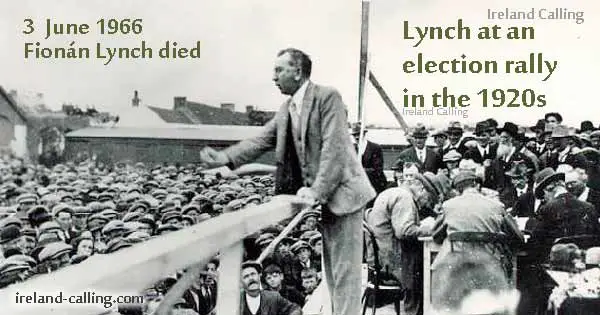june-top.html
1810 Robert Mallet was born in Dublin on this day in 1810. He was a scientist and had a specific interest in natural phenomena such as earthquakes and volcanoes. He travelled to Padula, Italy in 1857 to study first-hand the damage by the Great Neapolitan Earthquake.

Mallet recorded his study and wrote the Great Neapolitan Earthquake of 1857: The First Principles of Observational Seismology, an essay which was used to train seismologists for decades.
Click here to read more about Robert Mallet
Click here to read about more great Irish scientists
* * *
 1836 Barry Edward O’Meara died on this day in 1836. He was an Irish physician who worked as Emperor Napoleon’s personal doctor. He is believed to have been the first doctor to operate on Napoleon, when he removed a wisdom tooth in 1817.
1836 Barry Edward O’Meara died on this day in 1836. He was an Irish physician who worked as Emperor Napoleon’s personal doctor. He is believed to have been the first doctor to operate on Napoleon, when he removed a wisdom tooth in 1817.
O’Meara spent a lot of time in the company of Napoleon, and the two got on well. He was with him when he was exiled to the island of St Helena after his reign of domination across Europe was ended. O’Meara wrote about the mistreatment the former emperor suffered at the hands of British custodian, Sir Hudson Lowe in the book, Napoleon in Exile, or A Voice From St. Helena.
* * *
1878 Sinéad de Valera was born in Dublin on this day in 1878. She was a teacher and also a lecturer in Irish at Leinster College. There she met and fell in love with one of her students, Éamon de Valera.

The two married and had seven children. Sinéad looked after the house and the children, while her husband was making a major impact in Irish politics. He was an active member of the Irish Republican Army, and fought in the Easter Rising in 1916.
He was spared death, because of his American birth, and continued to campaign for an independent state for Ireland. He later became Taoiseach and had a long and distinguished career in Irish politics.
Sinéad de Valera was happy to remain in the background, and made no effort to join her husband in the national media. She raised her family, often alone for long intervals while her husband was abroad trying to gather support. She also wrote a series of children’s books.
De Valera wrote several collections of short stories including The Emerald Ring, The Stolen Child and The Four-leafed Shamrock.
Click here to read about more Irish writers
Click here to read about more key figures from Irish history
* * *
 1899 George Alcock MacDonnell died on this day in 1899. He was an Irish chess master, who competed with the world’s greatest players in the late 19th century. There was no such thing as an official World Championship at the time, but MacDonnell would have had a good chance of winning such a competition.
1899 George Alcock MacDonnell died on this day in 1899. He was an Irish chess master, who competed with the world’s greatest players in the late 19th century. There was no such thing as an official World Championship at the time, but MacDonnell would have had a good chance of winning such a competition.
He wrote two books about chess and his experiences, Chess Life Pictures, and Knights and Kings of Chess. MacDonnell also had a chess column in the Illustrated Sporting and Dramatic News publication, a London based sports magazine.
* * *
1963 Lucy Grealey born in Dublin on this day in 1963. She moved to America with her family while she was still very young and was raised in New York. Grealey developed a rare form of cancer when she was just nine, and had to have part of her jawbone removed.
She spent her teenage years having reconstructive operations on her face, and suffering the taunts of school bullies for her appearance. At the age of 18, she attended Sarah Lawrence College and became interested in poetry.
Grealey published her life’s experiences in 1994, An Autobiography of a Face. However, she suffered with ill health and became addicted to pain killing drugs. She died of a heroin overdose in 2002.
Click here to read about more Irish writers

* * *
1966 Fionán Lynch died on this day in 1966, just weeks after celebrating the 50th year anniversary of the Easter Rising. Lynch was one of the Irish nationalists fighting for freedom, and was a personal friend of rebel leader Michael Collins.
Unlike many of his comrades, Lynch was spared the death penalty for his part in the Easter Rising. Instead he was sentenced to 10 years in prison, although he was released in 1917 thanks to a general amnesty.
He spent the rest of his career in Irish politics and served as TD for Sinn Féin, Cumann na nGaedheal and Fine Gael.
Click here to read more about the Easter Rising

june-bottom.html